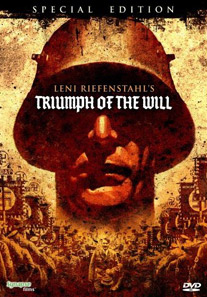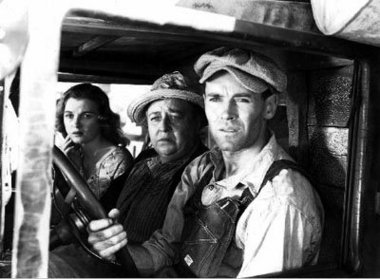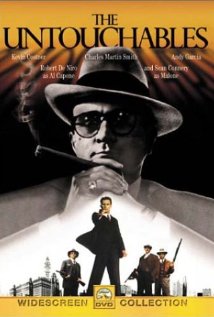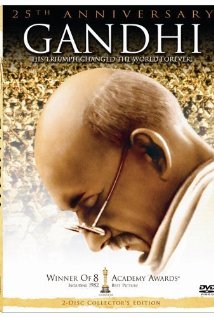 The 1930s on Film: 25 Educational Movies about the 30'sEducational Resources -> The 1930s on Film: 25 Educational Movies about the 30's by Shane Rivers
While most historical movies do alter the facts for the sake of drama, they still manage to capture the essence of history using broad brush strokes. If the visual component of a film connects with the viewer, they might be willing to suspend their texting long enough to conduct independent research online or at the local library. Whether you're an educator, academic, or average person, this list of movies about the 1930s should provide an adequate springboard for continued learning. And since these films would provide little benefit if you couldn't actually buy them, I've verified that each can be obtained from Amazon in DVD format. The Importance of the 1930sOne of the most important decades in the 20th century, the 1930s demonstrated the extremes of human nature. While Adolph Hitler appealed to national sentiment to rise to power in Germany, start World War II, and commit genocide, Mohandas Gandhi marched 240 miles on foot to peacefully resist the Indian salt taxes imposed by the ruling British government. Both had profound results, but other important events were simultaneously taking place in a variety of nations. The Great Depression ravaged economies across the globe. Soviet dictator Joseph Stalin launched purges and hoarded grain, resulting in the deaths of millions of his countrymen. China's Yellow River flooded twice, costing millions of lives on top of the body count from the ongoing war with Japan. In Spain, a brutal civil war broke out. But it wasn't all bad news in the '30s. The Golden Age of Hollywood was in full swing, with classics such as The Wizard of Oz and Gone with the Wind being released. Prohibition was repealed, radio was the dominant form of mass media, and great strides were made in the field of aviation. The arts also flourished, and the works of painters and musicians like George Gershwin, Louis Armstrong, Pablo Picasso, and Andrew Wyeth are still enjoyed today. To quote Dickens from A Tale of Two Cities, "It was the best of times, it was the worst of times." Films Set in the 1930s1. Hitler's SS: Portrait in Evil (1985) - This four-hour TV movie stars Bill Nighy and John Shea as a pair of brothers who grow up in Germany, participate in the rise of the Third Reich, and become willing participants in the subsequent horrors of World War II. Many of the major events surrounding the Nazi Party are covered, including the crippling of the trade unions, the Night of the Long Knives, Kristallnacht, and the Holocaust. While it doesn't include the precise historical detail of a documentary, Hitler's SS: Portrait in Evil is likely to prove more engaging for students than grainy newsreel footage. 2. Triumph of the Will (1935) - Leni Riefenstahl's propaganda masterpiece chronicles the 1934 Nuremberg Rally, a celebration attended by over 700,000 to celebrate the rise to power of the Nazi Party. During the four-day event, Adolph Hitler, Joseph Goebbels, and other leaders of the Third Reich whip the crowd into an almost religious fervor by appealing to notions of unity and national pride. In addition to capturing the chilling majesty of the event and Hitler's masterful ability to create a cult of personality, Riefenstahl employed innovative filmmaking techniques that would forever change the face of cinema. 3. Olympia (1938) - The 1936 Summer Olympics were held in Berlin, and Adolph Hitler planned on using the event to showcase the superior athletic ability of the Aryan race. Olympian Jesse Owens spoiled the Fuhrer's plans, as the African-American athlete captured four gold medals on his way to becoming a household name. Leni Riefenstahl once again broke new ground in documentary filmmaking, and her attention to style and form have routinely landed Olympia on lists of the greatest movies ever made. Educators can illustrate the rise of the Third Reich and the power of propaganda, while the success of Owens and his treatment back home (never congratulated by FDR, forced to ride a freight elevator to get to a reception in his honor) creates an opportunity to examine racial attitudes in 1930's America. 4. Swing Kids (1993) - During the 1930s, "swing kids" were German teenagers who rejected the ideals of the Hitler Youth and embraced swing and jazz music, as well as the American lifestyle. This fictional tale stars Christian Bale and Robert Sean Leonard as a pair of Hamburg teens living through tumultuous times, and Kenneth Branagh adds menace as a charismatic Gestapo officer. Young viewers should identify with characters who are closer to their own age, and the film adequately demonstrates that not all German citizens approved of the growing influence of the Nazis. 5. Voyage of the Damned (1976) - In 1939, the 900-plus Jewish passengers of the German ocean liner MS St. Louis tried to flee from the persecution of the Nazi regime. They were refused entry into Cuba, Canada, and the United States, with most of the refugees ending up back in Europe. It is estimated that 254 later died during the events of the Holocaust. This feature film documents the ship's voyage and stars such notable performers as Faye Dunaway, Lee Grant (nominated for an Oscar), Malcolm McDowell, Orson Welles, Katharine Ross, James Mason, and Max von Sydow. Voyage of the Damned provides an excellent opportunity to discuss the indifference towards Jewish persecution during the 1930s. 6. The Hindenburg (1975) - Germany was believed to have mastered the art of flying the skies in hydrogen-filled airships. This notion was disproved in 1937, as the Hindenburg burst into flames over New Jersey and killed 36 passengers and crew. The nightmarish photo of the disaster would be used for the cover for Led Zeppelin's debut album, and the eyewitness radio account by Herbert Morrison became one of the most famous in broadcast history. Wild conspiracy theories soon emerged, and this disaster film from director Robert Wise explores a number of the possibilities. The all-star cast includes George C. Scott, Burgess Meredith and Anne Bancroft. 7. Eternal Memory: Voices from the Great Terror (1997) - By the second half of the 1930s, the Great Purge was well underway in the Soviet Union. The brainchild of dictator Joseph Stalin, this ruthless eradication of enemies both real and imagined led to the deaths of an estimated 20 million individuals through famine, labor camps, and execution (at the height of the purge, an average of 1,000 people were executed each day). This documentary is narrated by Meryl Streep and focuses on the ravages of the Great Terror in Ukraine. A sobering reminder that Adolph Hitler wasn't the only monster of the 20th century.
9. Cinderella Man (2005) - The hardships of the Great Depression are constantly on display in this inspirational film from director Ron Howard. Russell Crowe stars as James J. Braddock, a real-life boxer whose retirement from the sport forced him to engage in sporadic, back-breaking manual labor to support his family (Renee Zellweger co-stars as his wife). But thanks to a desperation bout and an upset win, Braddock soon finds himself in contention for the heavyweight title. Crowe gives an earnest performance as a man willing to fulfill his familial obligations regardless of the personal costs, and Paul Giamatti is also notable as Braddock's longtime friend and manager. 10. American Experience: FDR (1994) - During his twelve years as president, Franklin Delano Roosevelt helped steer the nation though the Great Depression and World War II. This four-part PBS documentary focuses on his entire life, although those interested in movies about the 1930s will want to focus on the last two installments, "The Grandest Job in the World" (covering the Depression years) and "The Juggler" (WWII). Those interested in FDR's personal life will also learn about his various mistresses, his complicated relationship with wife Eleanor, and the 1921 illness that left him permanently paralyzed from the waist down. 11. O Brother, Where Art Thou? (2000) - Joel and Ethan Coen take elements of Homer's Odyssey, set it in 1937 Mississippi, and create an engaging film that covers a wide range of Depression-era issues. George Clooney heads up the eclectic cast as Ulysses Everett McGill, an escaped con in search of $1.2 million in stolen treasure. Along the way, he encounters crooked politicians, the Ku Klux Klan, notorious bank robbers, and even a blues musician who sold his soul to the devil. The soundtrack is brimming with period-specific tunes, and it would later win a Grammy award for Album of the Year. A recommended film for those interested in either Greek myth or the Great Depression. 12. Radio Days (1987) - Before television became the preferred form of mass media, Americans would huddle around their radio to receive entertainment and the news of the day. This coming-of-age tale from director Woody Allen is divided into a series of vignettes, many of which demonstrate the variety of programming found during the Golden Age of Radio (including Orson Welles' landmark The War of the Worlds broadcast in 1938). Period music is incorporated, including tunes from Glenn Miller, Tommy Dorsey, Benny Goodman, and Duke Ellington.
14. Dillinger (1973) - The Great Depression drove many individuals to a life of crime, while others simply used it as an excuse to engage in lawless--sometimes murderous--behavior. The first half of the 1930s were especially notable in this regard, as bank robbers such as Bonnie and Clyde, Baby Face Nelson, and Pretty Boy Floyd criss-crossed American pulling heists and avoiding the law. But none were more famous than John Dillinger, and this gritty crime film stars Warren Oates as the charismatic crook and Ben Johnson as Melvin Purvis, the FBI agent in hot pursuit. While 2009's Public Enemies (starring Johnny Depp as Dillinger and Christian Bale as Melvin Purvis) may appeal more to students thanks to the starpower of the lead actors, this selection remains a superior film. 15. Ken Burns America Collection - Huey Long (1985) - Before he gained fame with his series about the Civil War, documentarian Ken Burns focused on Louisiana governor and U.S. Senator Huey Long, one of the most polarizing figures in American politics. While Long's bid for president was never realized thanks to an assassin's bullet in 1935, "The Kingfish" left a powerful legacy that's still remembered. Numerous talking heads reflect on Long's contributions and shortcomings, including the system of bossism and its effects on 20th century politics. 16. The Final Hours: Amelia Earhart's Last Flight (2000) - Amelia Earhart was the first woman to fly solo across the Atlantic Ocean, and she was also a best-selling author and celebrity. In 1937, she and her navigator attempted to fly around the globe, but they disappeared somewhere over the Pacific Ocean and were never found. Theories about her fate have circulated for years, and this documentary attempts to uncover the truth by constructing a similar plane and following her proposed route. 17. The Mystery of Picasso (1956) - Pablo Picasso was one of the most influential artists of the 20th century, and he demonstrated his mastery by working in styles ranging from realism to cubism. In this unusual and inspiring documentary, acclaimed French director Henri-Georges Clouzot captures Picasso creating 20 works of art from scratch. Ideal for both art students and those interested in important 20th century figures, The Mystery of Picasso provides a rare look inside the mind of an artist. 18. The Good Fight: The Abraham Lincoln Brigade in the Spanish Civil War (1984) - From 1936 to 1939, the Spanish Civil War was fought to determine the future of a nation. The result was the beginning of the oppressive regime of General Francisco Franco, a reign that would last until his death in 1975. Countries ranging from Germany to Mexico were pulled into the conflict, and 2,800 Americans served in the Abraham Lincoln Brigade as part of a larger international volunteer force. Narrated by Studs Terkel, this documentary interviews survivors, discusses the war, and examines the persecution suffered by many volunteers when they returned home. 19. The Search for Robert Johnson (1991) - Produced for UK television, this documentary focuses on the short life of Robert Johnson, a master of the Mississippi Delta blues and one of the most influential musicians who ever lived. Fellow blues player John P. Hammond hosts the program, traveling through the Deep South to untangle the legends surrounding Johnson. Numerous interviews are conducted with those who knew the guitarist/singer, as well as admirers such as Eric Clapton and Keith Richards.
21. The Bingo Long Traveling All-Stars & Motor Kings (1976) - Whether you're interested in the evolution of baseball or the various racial issues still alive and well in 1930's America, this John Badham (Saturday Night Fever) comedy will provide a good starting point. Billy Dee Williams stars as Bingo Long, a Negro League pitcher who puts together his own team of misfits and barnstorms across the country. James Earl Jones and Richard Pryor co-star. Major League Baseball wouldn't include a black player until Jackie Robinson in 1947, so the film should provide inspiration for a number of discussions. 22. The Artist (2011) - Silent films captivated audiences in the early days of Hollywood, but the release of The Jazz Singer in 1927 changed all that. By the 1930s, "talkies" had become the dominant force at theaters, and by the end of the decade their silent cousins were no longer being made on a regular basis. Winner of five Academy Awards--including Best Picture, Best Actor, and Best Director--The Artist is a black-and-white French film that looks at the transition within the entertainment industry and its effect on actors. While the film contains limited spoken dialogue, viewers will still be delighted by the solid performances, old school charm, and an incredibly cute dog named Jack. 23. John Rabe (2009) - The Second Sino-Japanese War lasted from 1937 until 1945, and it was the largest Asian conflict of the 20th century. Fought between the nations of China and Japan, it merged into World War II and left a final death toll of at least 20 million. The most brutal example of the war came during the 1937 occupation of Nanking by Japanese troops, when hundreds of thousands of Chinese citizens were executed or raped. This film details the true-life heroic efforts of German businessman John Rabe (Ulrich Tukur), as he used his Nazi Party membership to establish an international safety zone that ultimately saved over 200,000 lives. Steve Buscemi co-stars as an American doctor in this German/French/Chinese co-production. 24. City of Life and Death (2009) - Another look at the Second Sino-Japanese War, this time through the eyes of Chinese filmmaker Lu Chuan. The focus is once again on the Nanking Massacre, including the international safety zone and the actions of John Rabe, but this time the lead characters are Asian. Greater emphasis is placed on the brutality that took place during the occupation of the city. Rape, madness, and murder are all depicted in graphic detail, and educators will want to carefully review the film before screening it in class. City of Life and Death is also notable for offering a sympathetic portrayal of a Japanese soldier, something that didn't sit well with many Chinese citizens. 25. Ip Man (2008) - If you're a teacher, getting students interested in the Second Sino-Japanese War can be a challenge. Luckily, this action-packed biography manages to shed light on an important period in Asian history while delivering whirlwind kicks and machine-gun punches. Chinese superstar Donnie Yen portrays Ip Man, a kung-fu legend who served as mentor to none other than Bruce Lee. Here, the gentle Ip is forced into action after the occupying Japanese military takes increasing liberties with the locals, including a series of fights where Chinese participants are awarded a bag of rice for each fight they win. The action sequences are choreographed with brutal flair, and plenty of attention is paid to day-to-day life in the southern city of Foshan. Whether you choose to watch one or many of these movies about the 1930s, you'll be increasing your understanding of past events and how they have shaped the modern world. It is my hope that viewers will be inspired enough to do additional research, as thousands of books exist to expand on the pivotal events and personalities of the decade. Without the proper perspective, history might indeed repeat itself. |
 Learning
about history is important, but the average person may find it
frustrating. That's because documentaries and books can sometimes
bury their potential audience under a landslide of newsreel footage
and lifeless prose. That's where motion pictures come into play.
Learning
about history is important, but the average person may find it
frustrating. That's because documentaries and books can sometimes
bury their potential audience under a landslide of newsreel footage
and lifeless prose. That's where motion pictures come into play.  8.
The Grapes of Wrath (1940) - Directed by John Ford, this
adaptation of the Pulitzer Prize-winning novel from John Steinbeck
stars Henry Fonda as Tom Joad, an ex-con migrating with his family
from Oklahoma to California in search of a better life. Both the
Great Depression and the Dust Bowl loom large in the film, allowing
viewers to get a glimpse of the two most devastating events to occur
on American soil during the 1930s. The quality of cast and crew
resulted in a total of seven Academy Award nominations, and the
American Film Institute ranked it 23rd on their 2007 list of the
greatest movies ever made in the United States.
8.
The Grapes of Wrath (1940) - Directed by John Ford, this
adaptation of the Pulitzer Prize-winning novel from John Steinbeck
stars Henry Fonda as Tom Joad, an ex-con migrating with his family
from Oklahoma to California in search of a better life. Both the
Great Depression and the Dust Bowl loom large in the film, allowing
viewers to get a glimpse of the two most devastating events to occur
on American soil during the 1930s. The quality of cast and crew
resulted in a total of seven Academy Award nominations, and the
American Film Institute ranked it 23rd on their 2007 list of the
greatest movies ever made in the United States.  13.
The Untouchables (1987) - From 1920 until 1933, it was
illegal to produce or distribute alcohol within the United States.
Known as the Prohibition Era, this ban resulted in a massive
increase in organized crime and the rise of mob bosses such as Al
Capone (played here by Robert De Niro). Kevin Costner stars as
real-life lawman Eliot Ness, a serious-minded fellow out to bring
law and order back to Chicago. Aided by a hand-picked group of men
known as "The Untouchables" (including Sean Connery in an
Oscar-winning role), Ness battles against the odds to end the reign
of Capone by any means necessary. Ennio Morricone's score will stay
with you long after the credits have rolled, and film buffs will
appreciate director Brian De Palma's recreation of The Battleship
Potemkin during a pivotal shootout in a train station.
13.
The Untouchables (1987) - From 1920 until 1933, it was
illegal to produce or distribute alcohol within the United States.
Known as the Prohibition Era, this ban resulted in a massive
increase in organized crime and the rise of mob bosses such as Al
Capone (played here by Robert De Niro). Kevin Costner stars as
real-life lawman Eliot Ness, a serious-minded fellow out to bring
law and order back to Chicago. Aided by a hand-picked group of men
known as "The Untouchables" (including Sean Connery in an
Oscar-winning role), Ness battles against the odds to end the reign
of Capone by any means necessary. Ennio Morricone's score will stay
with you long after the credits have rolled, and film buffs will
appreciate director Brian De Palma's recreation of The Battleship
Potemkin during a pivotal shootout in a train station.  20.
Gandhi (1982) - In order to oppose British rule in the
Indian subcontinent, Mohandas Gandhi employed nonviolent methods of
resistance that eventually resulted in the modern-day republics of
India, Pakistan, and Bangladesh. Despite imprisonment and multiple
attempts on his life, the civil rights icon organized citizens of
all social castes and worked tirelessly until his assassination in
1948. This is the finest biography of Gandhi's life, and it was
directed by Sir Richard Attenborough and stars Ben Kingsley in the
title role. Widely celebrated, it won eight Oscars including Best
Picture, Best Director, Best Actor, and Best Original Screenplay.
20.
Gandhi (1982) - In order to oppose British rule in the
Indian subcontinent, Mohandas Gandhi employed nonviolent methods of
resistance that eventually resulted in the modern-day republics of
India, Pakistan, and Bangladesh. Despite imprisonment and multiple
attempts on his life, the civil rights icon organized citizens of
all social castes and worked tirelessly until his assassination in
1948. This is the finest biography of Gandhi's life, and it was
directed by Sir Richard Attenborough and stars Ben Kingsley in the
title role. Widely celebrated, it won eight Oscars including Best
Picture, Best Director, Best Actor, and Best Original Screenplay.